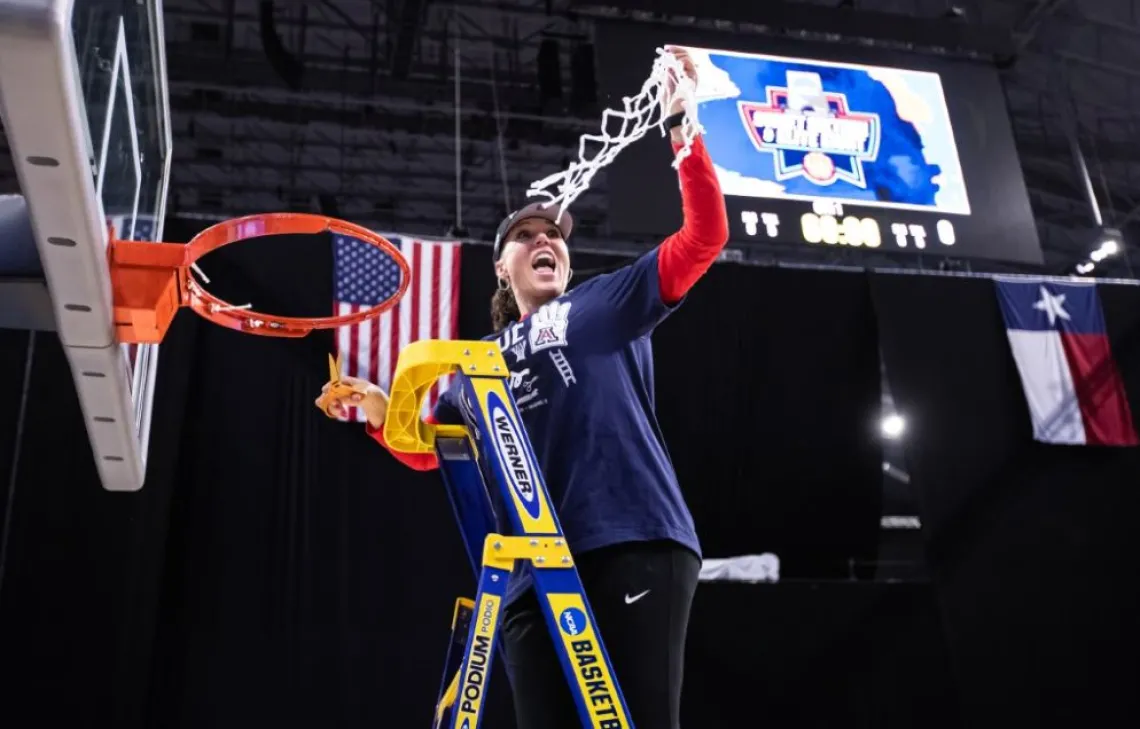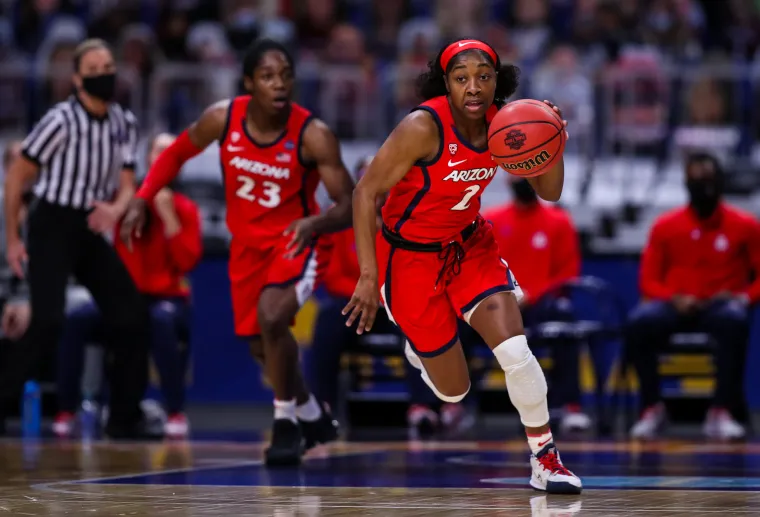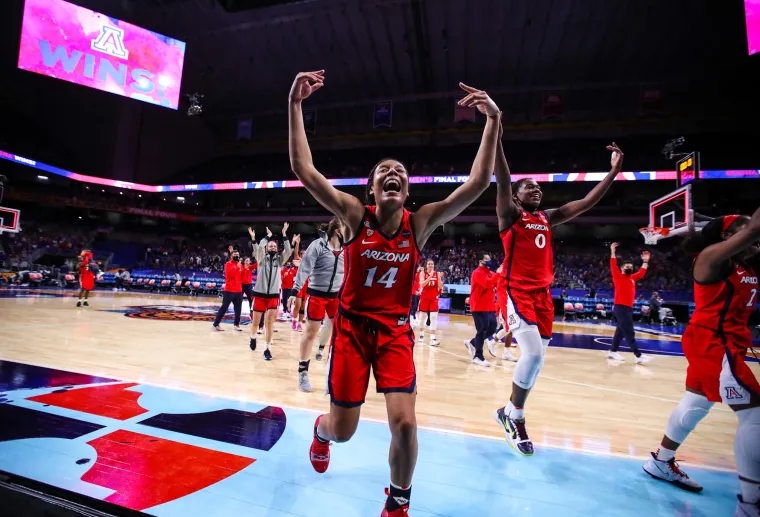#MadeFourIt

Adia Barnes ’98 was part of several firsts during her time as an Arizona women’s basketball player: first NCAA Tournament appearance, first Wildcat drafted to the WNBA, and first player in program history to eclipse 2,000 career points. Her school record of 2,237 still stands.
Now, 23 years later, as the head coach she has taken the women’s basketball program to another major first. The Wildcats made the deepest postseason run in program history, fighting their way to the NCAA Championship game in San Antonio, with a 54-53 loss to Stanford on April 4.
“I’m really proud of our team,” Barnes says. “Proud of what we were able to accomplish this year. No one, even myself, thought we’d be playing for a championship.”


Adia Barnes ’98 was part of several firsts during her time as an Arizona women’s basketball player: first NCAA Tournament appearance, first Wildcat drafted to the WNBA, and first player in program history to eclipse 2,000 career points. Her school record of 2,237 still stands.
Now, 23 years later, as the head coach she has taken the women’s basketball program to another major first. The Wildcats made the deepest postseason run in program history, fighting their way to the NCAA Championship game in San Antonio, with a 54-53 loss to Stanford on April 4.
“I’m really proud of our team,” Barnes says. “Proud of what we were able to accomplish this year. No one, even myself, thought we’d be playing for a championship.”
The achievement is even more impressive considering the program’s record when she took over five years ago. In the five seasons before Barnes’ arrival, the Wildcats finished no higher than 10th in the Pac-12. It had been 11 seasons since their last NCAA Tournament appearance in 2005. Barnes is the first NCAA coach to reach the Final Four in their first five years as a head coach since former University of Washington Head Coach Mike Neighbors and is the fourth head coach to lead their alma mater to the National Championship game.
“When I took the job, it was a bad job,” Barnes told reporters after Arizona’s Sweet 16 win over Texas A&M. “Everybody said don’t take it. … All my mentors, friends, legends in the game, said ‘Don’t take it, it’s a bad job. You can’t win. It’s hard to recruit there.’”
Barnes points to Aari McDonald, one of her early transfers, as essential in helping turn the program around. Barnes and McDonald were already well-acquainted. Barnes was an assistant coach at Washington, where she recruited McDonald to play. McDonald had a standout first year for the Huskies, making the Pac-12 all-freshman team. But when Neighbors left for another program, McDonald reunited with Barnes, who was one year into her tenure
at Arizona.
“She took a leap of faith,” Barnes says. “Believing in me and believing in herself and believing we could come here and do something special.”
The star senior opted to go pro in February and is now projected to be a top-10 WNBA pick. She leaves Tucson as the reigning Pac-12 Player of the Year, two-time Pac-12 Defensive Player of the Year, a three-time AP All-American and a three-time Pac-12 scoring leader. She’s now the third all-time leading scorer in program history, amassing 2,041 points in just three seasons. She will be the first Wildcat to go in the WNBA draft since 2013.
“She put the country on notice,” Barnes says. “What we did in the tournament put Arizona on the map. … For me and Aari to do that together — especially at Arizona, at my alma mater — means the world to me. We completely changed the program. Forever.”
This was an extraordinary season for the Wildcats and the sport as a whole, seeing a significant jump in postseason TV viewership. But, shortly before tournament play began, a viral social media video illustrated the stark differences between the player experiences at the women’s NCAA Tournament vs. the men’s tournament. For the men, weight rooms included dedicated team sections set up for workouts, while the 64 women’s teams shared a single rack of dumbbells, one stationary bike and a stack of about 10 yoga mats. Men’s teams were served buffets meals including steak, shrimp, and lobster macaroni and cheese, while the women were given pre-packaged meals featuring unidentifiable meat.
“There is a huge disparity,” Barnes says. “But if you’re someone like me, this has been happening our whole career. When I played in Europe at the top, top level, the men’s teams were making, like, three times the money. It’s always been like this. Most of us are just so numb to it.
“Now it’s time for the NCAA and people to make things more equitable. And it’s just, fair is fair. What’s right is right.”
What can Arizona fans and donors do to help bridge that gap? Barnes says it’s simple.
“Selling out the arena is a huge way for Tucson to help pour more money into our program,” she says. “Selling out. Supporting us. Watching us on TV. Buying our shirts. All those things support women’s basketball, and they provide resources.”
